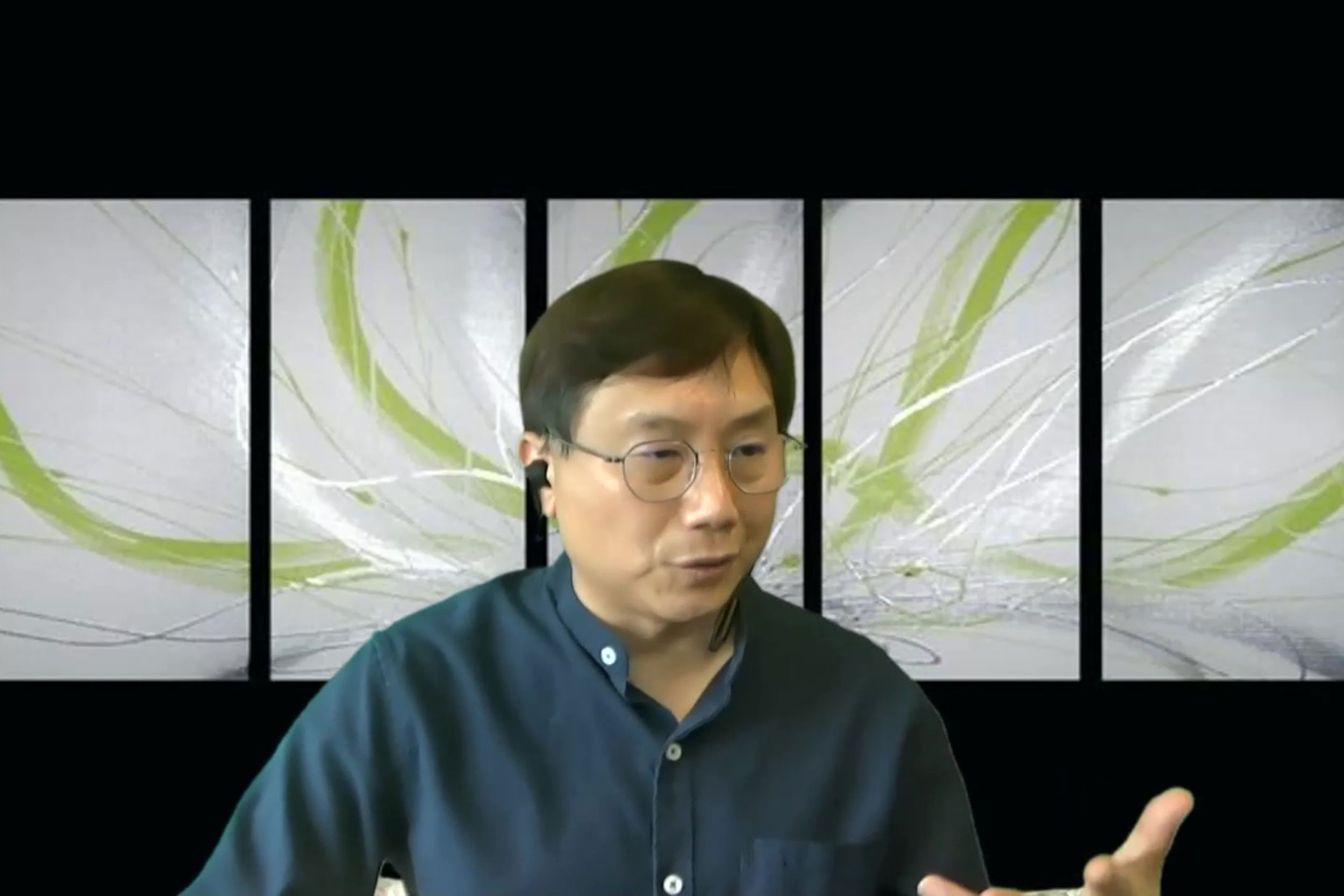In July, more than a dozen major cyberattacks were recorded globally by government and other high-level agencies, according to the Center for Strategic & International Studies.
As the number of cyberattacks increased so did the demand for cybersecurity professionals. To fill the gap, the Harvard Extension School (HES) has established the Cybersecurity Graduate Program, which offers a strong foundation and detailed technical knowledge in security, privacy and cryptography.
The Gazette recently spoke to Bruce Huang, director of the HES Cybersecurity Graduate Program in Information Technology, who will lead the new degree program.
GAZETTE: There have been several very high-profile ransomware attacks on major organizations recently. What are some key things companies can do to protect themselves from these kinds of attacks?
HUANG: Changing the mindset of people is job 1. We cannot prevent cybercrimes unless we understand the risk, the financial impact, and most importantly, the mentality of “it will not happen to me.” There are many tools in the marketplace to help companies prevent cyberattacks; however, tools cannot avoid behavior risk by the people.
To change people’s mindsets requires education and training. It also requires sound policies and a well-tested business continuity plan.
GAZETTE: Why have we seen such a proliferation of these types of attacks over the past year?
HUANG: Cybercrime and cybersecurity risk mitigation is often a fight between an evil mathematician and a good mathematician. Over the past decade, the evil mathematician got better at playing this game from strategy to design and implementation while enterprises struggled to recruit cybersecurity talents. The technological advancement in digital currency and online payment systems gave cybercriminals a way to anonymously receive millions of dollars of ransom payments. Companies’ willingness to pay a hefty amount to restore their systems and data is also a factor. According to Bloomberg, CNA Financial paid $40 million to the attackers in March 2021.

GAZETTE: We have seen an influx of people entering the field of cybersecurity as the demand among employers for an educated workforce in this area has risen. How do you see the new cyber security A.L.M. degree program at Harvard Extension School meeting that need?
HUANG: Our goal is to create a cybersecurity talent pool to address the tactical need and the long-term strategic need in cybersecurity. By strategic need, we mean the need to have subject matter leaders who can think strategically and proactively when crafting cybersecurity plans and strategies for their organizations.
GAZETTE: Can you give us a glimpse into your vision for this new degree program, from the courses offered to the instructors who will be guiding the students, what do you hope students will gain from this program?
HUANG: We took a holistic approach when designing the A.L.M. cybersecurity degree curriculum. In addition to teaching tools and computational methods, we also expose our students to governance, risk assessment, compliance and control policies, and approaches. We expected our graduates to become a strong workforce in roles ranging from front-line incident response teams to chief information security officers (CISCO) at private enterprises and government organizations. The advisory board for designing the degree curriculum included CIOs and CISOs from large publicly traded enterprises and the public sector and faculty at the Harvard School of Engineering and Applied Sciences. We have also added several C-level cybersecurity executives to the faculty to teach a few of the core courses in the A.L.M. cybersecurity program.
GAZETTE: From your start at IBM to becoming the director of information technology programs at HES, you have been involved in dozens of situations where critical thinking was crucial to the success of a situation that had an important digital or server structure to it. What are some of the changes you see coming up in the future that students will need to focus on in this new degree program as they enter an ever-changing cyber environment?
HUANG: Continue to challenge the conventional wisdom. What works yesterday may not work the next day. Take ransomware attacks as an example; regular backups of critical files and data may not be sufficient anymore. Ransomware attacks have evolved from locking systems to stealing and encrypting backup files and data. Cloud infrastructure and applications will continue to evolve. The remote working arrangement, employees using their own devices connecting to the company’s network, the increasing use of the Internet of Things in the work environment, etc., will make cybersecurity management a challenge. Therefore, our students must focus on the theory and concepts besides learning how to use a particular tool or approach so that they can continue to develop new solutions.
"degree" - Google News
August 27, 2021 at 02:35AM
https://ift.tt/3yoscAK
Extension School degree program for cybersecurity professionals - Harvard Gazette
"degree" - Google News
https://ift.tt/2zPqEHn
https://ift.tt/2WkjZfX
Bagikan Berita Ini















0 Response to "Extension School degree program for cybersecurity professionals - Harvard Gazette"
Post a Comment